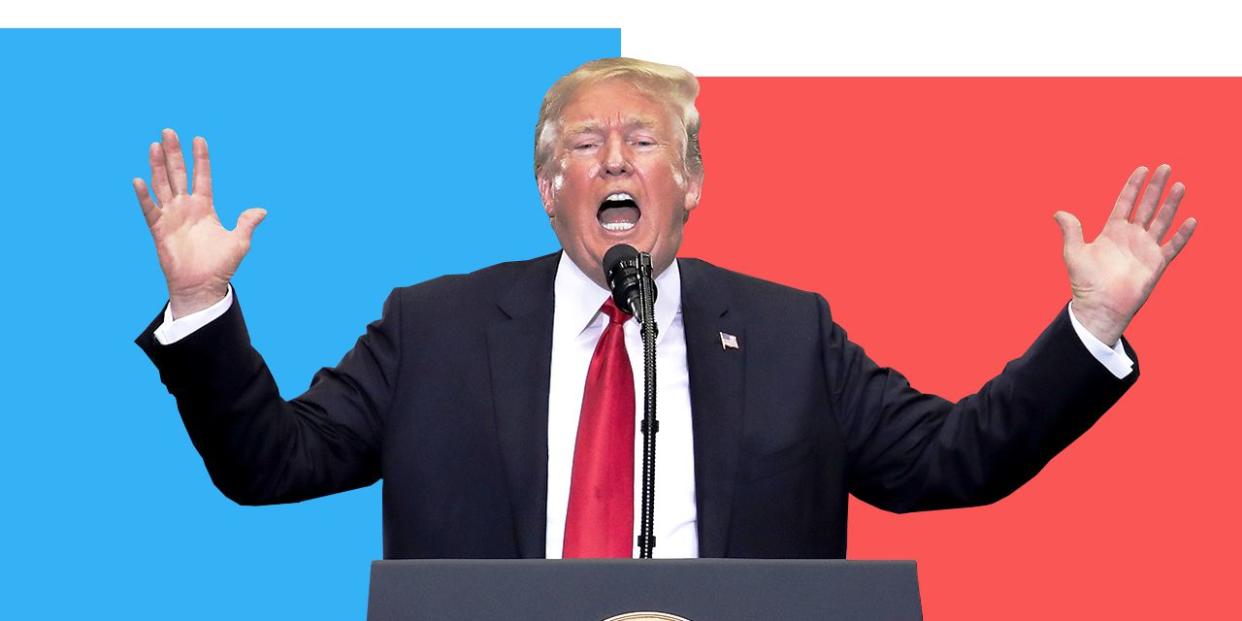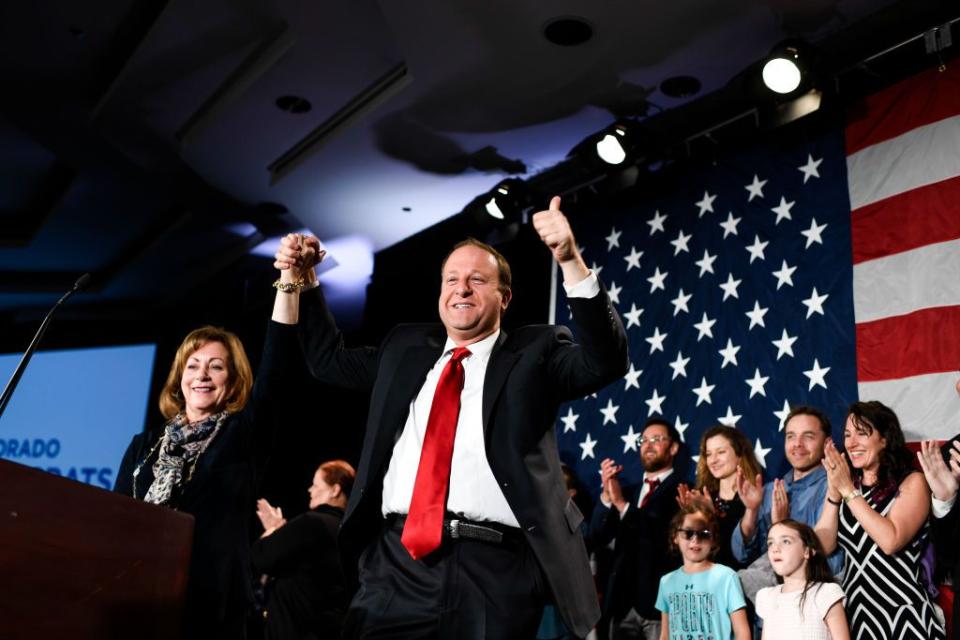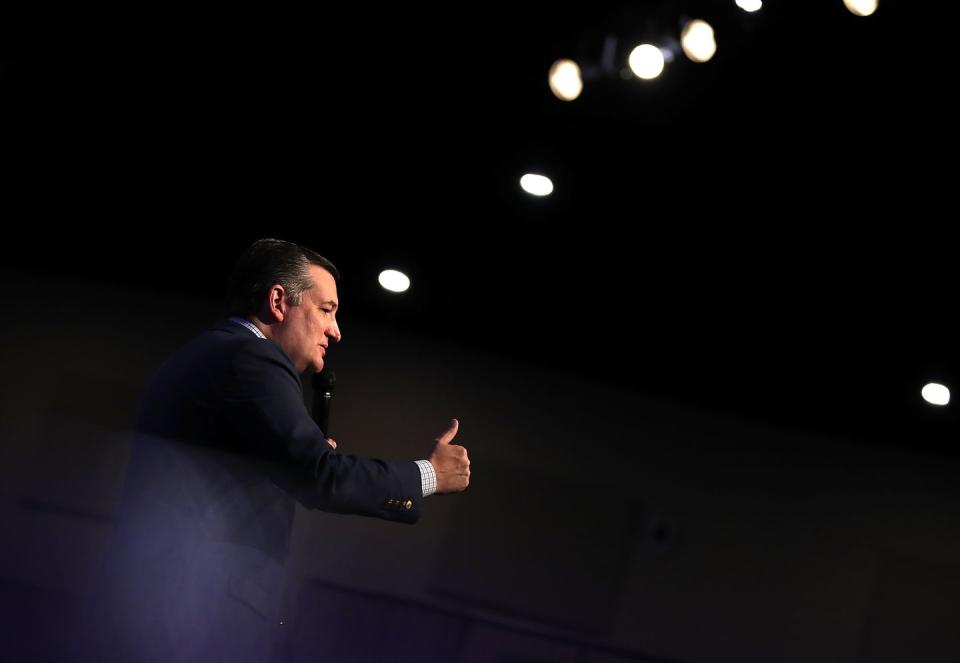If Donald Trump Is a Stress Test for Democracy, the Midterms Were Just a Warm Up Exercise

Trump, the cliché goes, is a stress test for American democracy. The Founders had pessimistic assumptions about human nature and they designed a system that anticipated the possibility-even likelihood-that an illiberal demagogue like Trump might one day hold the country’s most powerful office. So they studded the architecture of government with choke points and countervailing forces that were meant to prevent a future Trump from doing too much damage before exiting office.
In less turbulent times our creaky presidential system-which frequently features a co-equal legislature controlled by a different party fighting the president-can seem anachronistic, a system overly concerned with preventing a too-powerful executive at the expense of efficiently implementing an agenda. (In recent decades, few new democracies around the world have chosen to adopt an American-style presidential setup, seeing it as too sclerotic.)
A lot of liberals in the Obama era, when Democrats controlled Congress with large margins but still had enormous difficulties passing legislation, argued for removing some of the impediments that presidents face, like the filibuster in the Senate. And as advocates of activist government, many prominent liberals have frequently pined for the efficiency of a parliamentary system in which the executive and legislature act as a unit.

Trump’s election ended these debates. No liberal, or anyone who cares about democracy, would advocate altering the current system in ways that would provide someone like Trump, who openly celebrates the world’s worst authoritarians, with more powers. Trump’s rise shifted the debate in the other direction: was our constitutional system equipped with enough chokepoints to stand up to a populist demagogue? Prominent scholars who study the subversion of democracies pointed to Turkey, Hungary, Poland, Russia, and other places where Trump-like populists have recently consolidated power and undermined liberal institutions and warned that it could happen here.
So when I was watching the returns on Tuesday, the first national Election Day since Trump’s victory, I processed the results in a different way than I had in the past. Every president faces a midterm backlash. But the question I and many others had was whether the scale of the backlash against Trump would be commensurate with the scale of the threat he poses to American democracy. Two years of extraordinary changes in American politics-marked by a return to the use of overt racism in campaigns, rhetorical attacks on the free press, efforts to undermine the independence of law enforcement, and a normalizing of attacks on the opposition party as illegitimate or criminal-ought to create an equally extraordinary backlash by voters.
Did it?
The gains for the opposition party are impressive: when the counting is over Democrats are likely to gain close to forty House seats, seven governorships, and more than 300 state legislative seats. Even in the U.S. Senate, where it’s common to point out Republicans gained seats, the story can be told a little differently: Democrats, defending a disproportionate number of seats in deep red territory, won two-thirds of the races. All of this occurred despite a roaring economy with unemployment under four percent.
I asked the Harvard political scientist Yascha Mounk, an expert on populists and the threat they can pose to democracies, if he believed the American system responded effectively to the Trump threat this week. Mounk has pointed out that in the recent past successful populist demagogues have generally broadened their appeal once in office, expanding their support among middle class and moderate voters. He saw the midterms as a major repudiation of Trumpism and a vindication of the American system.
“The midterms are certainly an important test of Trump's popularity,” he said, “and they show that he really is as unpopular as polls have shown all along. So that raises the question of why Trump, at least at this juncture, is so much less popular than other authoritarian populists at a similar stage in their tenure-most of whom have tended to prevail at the ballot box.”
Mounk’s view is that Trump is simply inept at exercising power. Successful populists in recent years have been more strategic and disciplined. Trump, perhaps because of an overwrought narcissism that prevents him from focusing on anything that is not personally and immediately beneficial to him, hasn’t worked on capturing institutions or pushing through laws the way populists in other countries have. In turns out being a true authoritarian is hard work and Trump is bad at it.
But Mounk also argued that America really is better positioned to absorb and rebound from Trump than, say, Turkey or Hungary. We have a decentralized government, a free and independent press that, despite the bluster, hasn’t been reined in in any way by Trump. “As a result, Trump has found it harder to reshape public opinion than some of his populist peers,” Mounk argued.
Finally, Trump’s nativist and racist appeals, which of course are as old as America, have been met with a loud and growing opposition that draws on the equally strong American strain of support for a melting pot society. “As a result, Trump's race-baiting rhetoric has been rebuked by a larger number of voters than it might have been on other countries,” Mounk said.

I think he’s mostly correct. Tuesday showed that our system is still self-correcting. Though it also has to be said that the very idea that Trump poses some kind of a threat to democracy is still mostly an elite concern. Many Democrats who won on Tuesday ran campaigns that wouldn’t necessarily have been different had Jeb Bush or Ted Cruz been president, and emphasized traditional issues like health care and education rather than running purely as anti-Trump candidates. A lot of voters don’t take seriously the idea that Trump represents something uniquely perilous.
If it’s true that this remains an elite concern, it is now also mostly a Democratic elite concern. Despite their poor showing, the post-midterm Republican Party is more monolithic in its embrace of Trump. The most prominent voices of dissent-people like Jeff Flake, Bob Corker, Mark Sanford, John McCain-have either retired, died, or been defeated over the last two years. Trump, unusual for a president in his first midterm, remained enormously popular among Republican voters. And Trump’s insistence on Wednesday, at his deranged victory lap press conference, that his extreme rhetoric in the final weeks of the campaign helped more than it harmed Republican candidates is widely shared by analysts and elected officials on the right.
But still: two cheers for American democracy. It still sort of works.
Then again, as Mounk noted, Tuesday was just a warm-up. “The crucial test will come in 2020,” he said. “It's only then that we'll learn whether Donald Trump is removed from office, or given another four years to denigrate American institutions.”
('You Might Also Like',)

